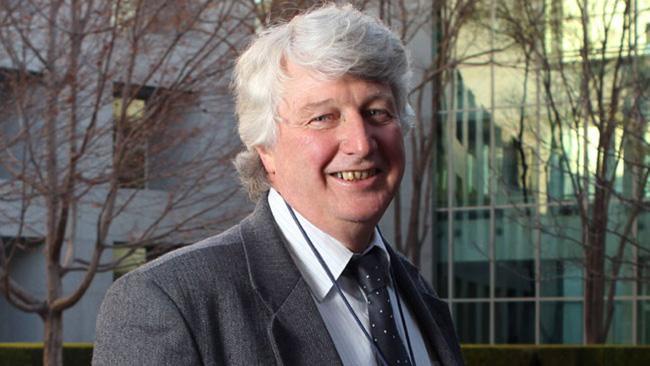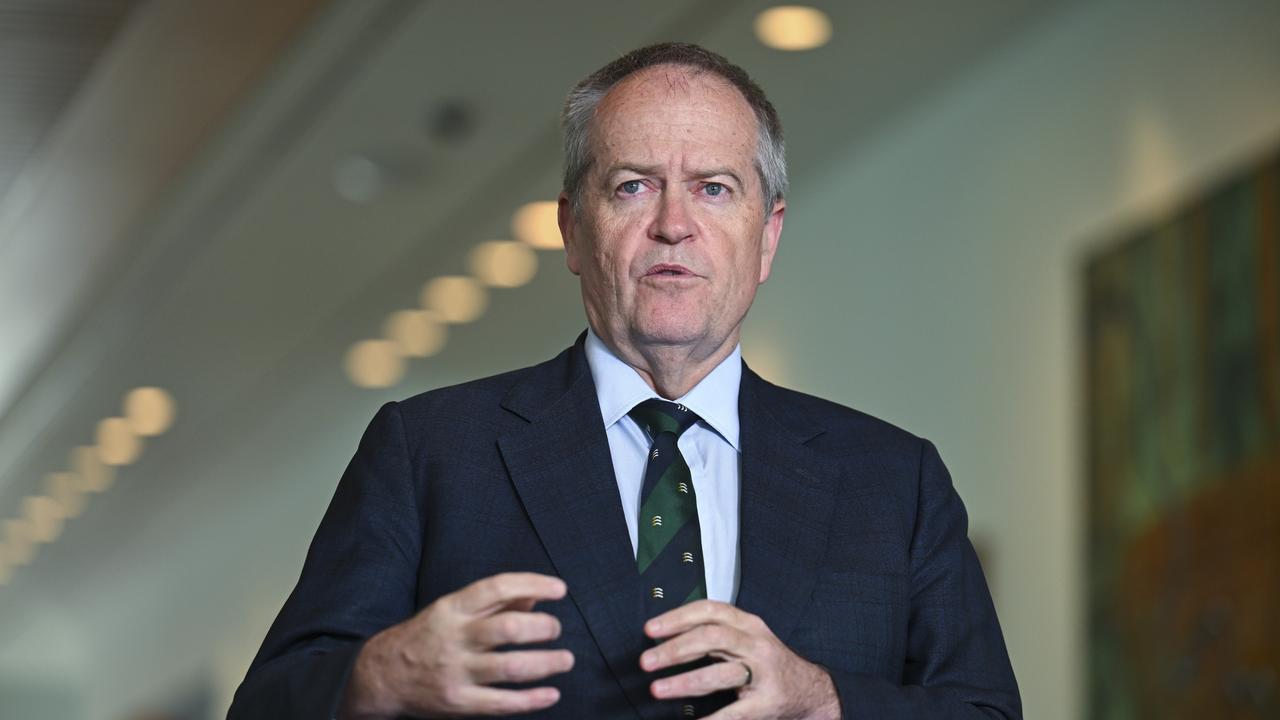Schools lose $760m as Colin Barnett rejects 'grossly inequitable' system
SCHOOLS in WA stand to lose about $760 million in federal funding after Premier Colin Barnett yesterday ruled out signing up to the new system.
SCHOOLS in Western Australia stand to lose about $760 million in federal funding after Premier Colin Barnett yesterday ruled out signing up to the new system proposed by Julia Gillard, which he described as "grossly inequitable".
Mr Barnett said the offer under the new funding scheme "reflects a political attitude of the Gillard government towards Western Australia", with the bulk of new money targeting the eastern seaboard.
"On those figures alone, this is grossly inequitable and shows a complete disdain by the Prime Minister to Western Australia. I will not sign an agreement, which, on all the advice I have, will disadvantage West Australian education, and particularly West Australian government schools," he said.
The federal government also faces trenchant opposition to the new model from Queensland Premier Campbell Newman, who yesterday questioned the long-term benefit to the state, but said he would keep an open mind in negotiations on Friday at the Council of Australian Governments meeting in Canberra.
While premiers in other states are more conciliatory, Ms Gillard faces the prospect of different funding agreements in different states, with NSW, Victoria, South Australia and Tasmania the most likely to agree to the new system. The premiers last night held a telephone hook-up to discuss the contentious $14.5 billion schools funding plan, which sees the commonwealth provide $2 for every $1 invested by the states. Under the plan unveiled by Ms Gillard at the weekend, Western Australia would receive top-up funding of $300m over the next six years, less than Tasmania, which will receive $400m, and far less than the other large states of NSW, Victoria and Queensland, which will receive $5bn, $4bn and $3.8bn respectively.
Mr Barnett said the proposal was "totally unacceptable" and would entail "holding back spending on education in Western Australia until other states, with the federal government's support, can catch up" and it made no sense to reward those states that had "neglected" education funding.
"It might be more equitable for Tasmania or the Northern Territory," he said. "It's not more equitable for Western Australia. And why would we slow down the advancement of education in this state to allow the other states to catch up?
"(West Australians) should simply feel cheated and they should feel their children are being cheated. Why should Western Australia lower its funding of schools over the next six years compared to what would otherwise occur, simply to satisfy Julia Gillard's policy objective?"
Ms Gillard yesterday said the "top-up" amounts for the states varied because some state school systems, like Western Australia, were closer to the schooling resource standard set in the new model than others.
"So some states have done better over time. WA has done a good job with its schools, big tick there, it's got a shorter journey to the school resourcing standard and that's what explains the $300m," she said.
"But if we just said, well, let's share money out, let's keep the current system and just put money on top of it, then every inequity, every disparity, everything wrong with the current system would be taken with us into the future."
Schools Education Minister Peter Garrett confirmed that Western Australia would miss out on about $560m over the next five years in targeted funding programs if the proposed model was not adopted, which is worth about $523,000 per school or $1535 per student.
The loss of $560m would be on top of the extra $200m offered by the commonwealth if the state boosted its funding by $100m under the new scheme.
"Colin Barnett is saying to WA parents and schools that he's willing to walk away from another $300m in school funding. This isn't small change we're talking about. It's enough to pay for an extra 500 teachers for the next six years, for example," Mr Garrett said.
"He needs to stop claiming that schools will lose money. They won't. We've been clear about that from the start and it's time he stopped trying to scare families and schools. Every school will see a rise in funding next year - and that includes every WA school."
As some states said they would have to make cuts to find savings to fund the program, the Prime Minister said the federal government had shown it was prepared to make savings for schools, in its $2.3bn cuts to universities. "We are now turning to our state colleagues to do the same."
The opposition said yesterday it would keep the new funding model in place only if all states and territories agreed to it. But education spokesman Christopher Pyne said a Coalition government would not honour agreements in a situation where different states were operating under different funding models.
Victorian Premier Denis Napthine, who last night led a phone hook-up of premiers to discuss the issue, is also keeping an open mind on negotiations at COAG, but has warned the state will not agree to anything that leaves its schools worse off.
NSW Premier Barry O'Farrell yesterday reiterated his state's support for the "broad thrust" of Gonski, but said cuts would have to be made to find the extra funding required.
A senior NSW government source last night said no decision on school funding would be made at the COAG meeting on Friday, but the state would "continue to examine the affordability of the commitment required in the context of our support" for the model.
South Australian Labor Premier Jay Weatherill, a former education minister, yesterday accused other states of "grandstanding", but despite earlier appearing to defend the $600m offer to the state he refused to express any confidence in striking a deal with the federal government.
"It's a question of using the appropriate tactics for the circumstances, and I am interested in getting a result. There's a long way to travel and we will be protecting South Australia's interests in the negotiations," he said.
Tasmanian Premier Lara Giddings said the state was prepared to meet its share of the funding.
Northern Territory Chief Minister Adam Giles is waiting to the see detailed offer on Friday, but he said the Territory was "in a very tough spot" to find new money.
Mr Newman also yesterday raised fears that schools could be worse off in the long term under the new model, with the proposed indexation rate of 3.6 per cent less than that state's rate of 5 per cent.
The Queensland government is concerned some schools that already receive a high level of funding - including state, independent and Catholic schools from cities and regional and rural areas - would not receive the amount they had previously been on track to gain.
Mr Newman said state officials had been in discussions with the commonwealth throughout the day and he would go to COAG with an "open mind".
"I have yet to see the latest details. I'm afraid that has been the hallmark of the way the commonwealth has conducted this," he said.
Mr Pyne yesterday was forced to clarify a "slip of the tongue" in an interview on ABC radio that "if the Coalition is elected, states like Western Australia and South Australia and the ACT will be worse off".
"I meant to say they will be better off than in this model where over time they will see real decreases rather than increases in their commonwealth support," he said.
Additional reporting: Rosanne Barrett, Michael Owen and AAP




